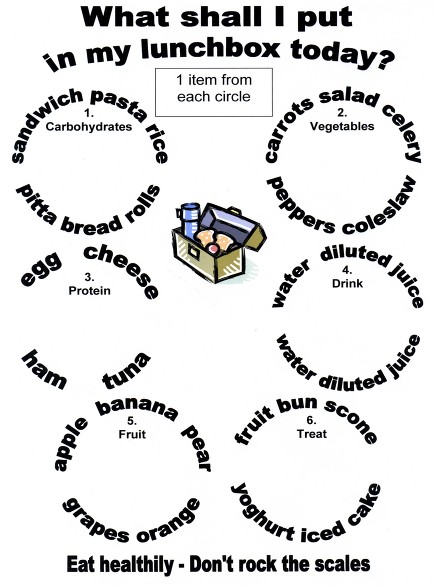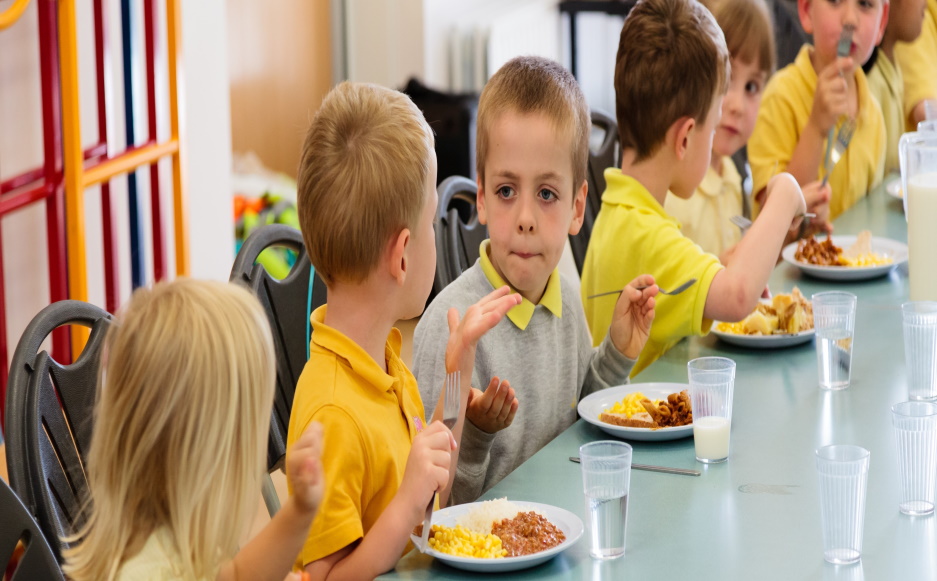Health and Wellbeing
Children find it easier to learn well and be successful if they are:
- Healthy (and enjoy good hearing and speech)
- Rested, and can concentrate well and play happily
School tries to help families by:
Promoting healthy eating
- We provide free NHS fruit for infants and encourage all juniors to bring in fruit from home to eat at morning break-time
- We encourage healthy lunchboxes by involving children in selecting items from the following “food families”
- We do not permit sweets and biscuits
- We encourage children to have a water bottle and drink plenty of fluid
Promoting sensible bed-times during the School week
- Parents usually find that a fixed routine of washing, story, bed (no TV!) and sleep works best
Promoting exercise
- All children have 2 PE lessons a week, we use brain breaks, energisers and additional clubs to promote a healthy lifestyle.
Promoting the work of the School Nursing Team
The School Nursing Team can be contacted on 0300 303 1137 option 1. They offer advice to parents on any issue ranging from bed-wetting to headlice, food refusal, diet, sleep etc.
The School Nursing Team also provides counselling to pupils, for example, in managing anxiety or temper.
If anything worries you, then please contact them.

We also try to control / limit ill health to protect others
- Headlice – if everyone groomed their child’s hair once a week, using a headlice comb and conditioner it would be really helpful. If you find headlice or eggs, please let School know so we can alert other parents in the class. Advice on detection and treatment can be found at: http://www.nhs.uk/conditions/head-lice/pages/introduction.aspx
- Threadworms – please investigate any itchiness, treat and inform School, as above. Thank you. Children should know how to wash their hands thoroughly with warm water and ordinary soap, for as long as it takes them to sing ‘Happy Birthday’ twice over! This limits the spread of many ailments.
- Conjunctivitis (‘pink eye’) – this is very infectious and a visit to the GP is required. After treatment, children can return to School. There is no exclusion time however if your child is in discomfort they should stay at home.
- Sickness and diarrhoea – this is usually a viral illness that will resolve itself with rest and boiled water. Children should be kept at home whilst ill and for 48 hours after last episode of diarrhoea or vomiting.
- Cold, bad throats, coughs – children with a temperature will be ‘floppy’ and unable to learn properly. The best place is at home, in bed. This is the best place for anyone with a really bad throat / cough too.
If your child is ill, please phone School to explain his/her absence.
Not sure? Is it school refusal?
You will not want to encourage school refusal, which is often typified by uncharacteristic headaches, tummy aches, claims to be feeling sick etc. It often happens when someone else in the family is off school or work and is hard to deal with! It is best to proceed with School attendance and say that School has a bed and a welfare room and can cope. We will phone you to discuss any concerns we have.
- Major/minor accidents
We have qualified first aiders and clear procedures for dealing with anything major…fractures, fits etc. We always contact parents. Junior children are taught how to deal with very minor injuries themselves (scratches, grazes). Otherwise, they can ask for help at the welfare room. You are always informed of head injuries. Click here for Head Injury, Advice for Parents and Carers leaflet.

